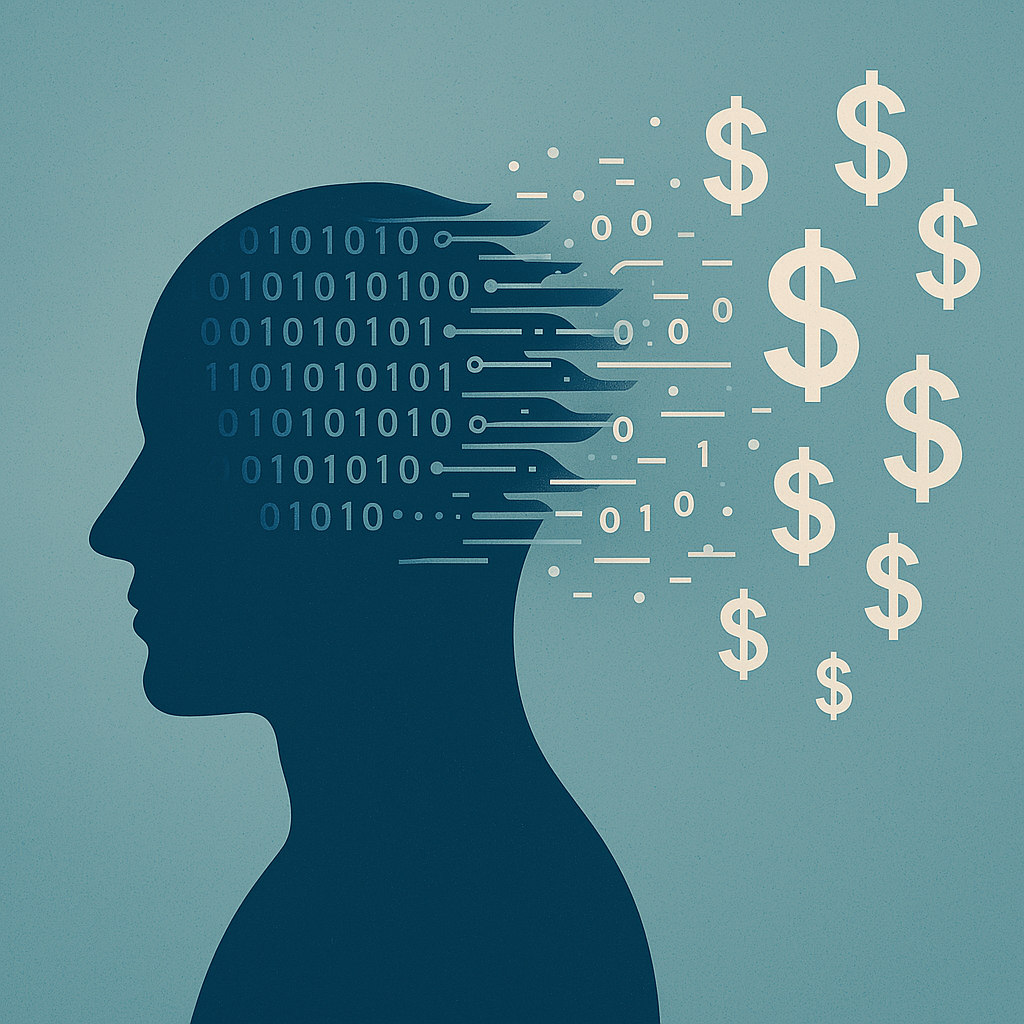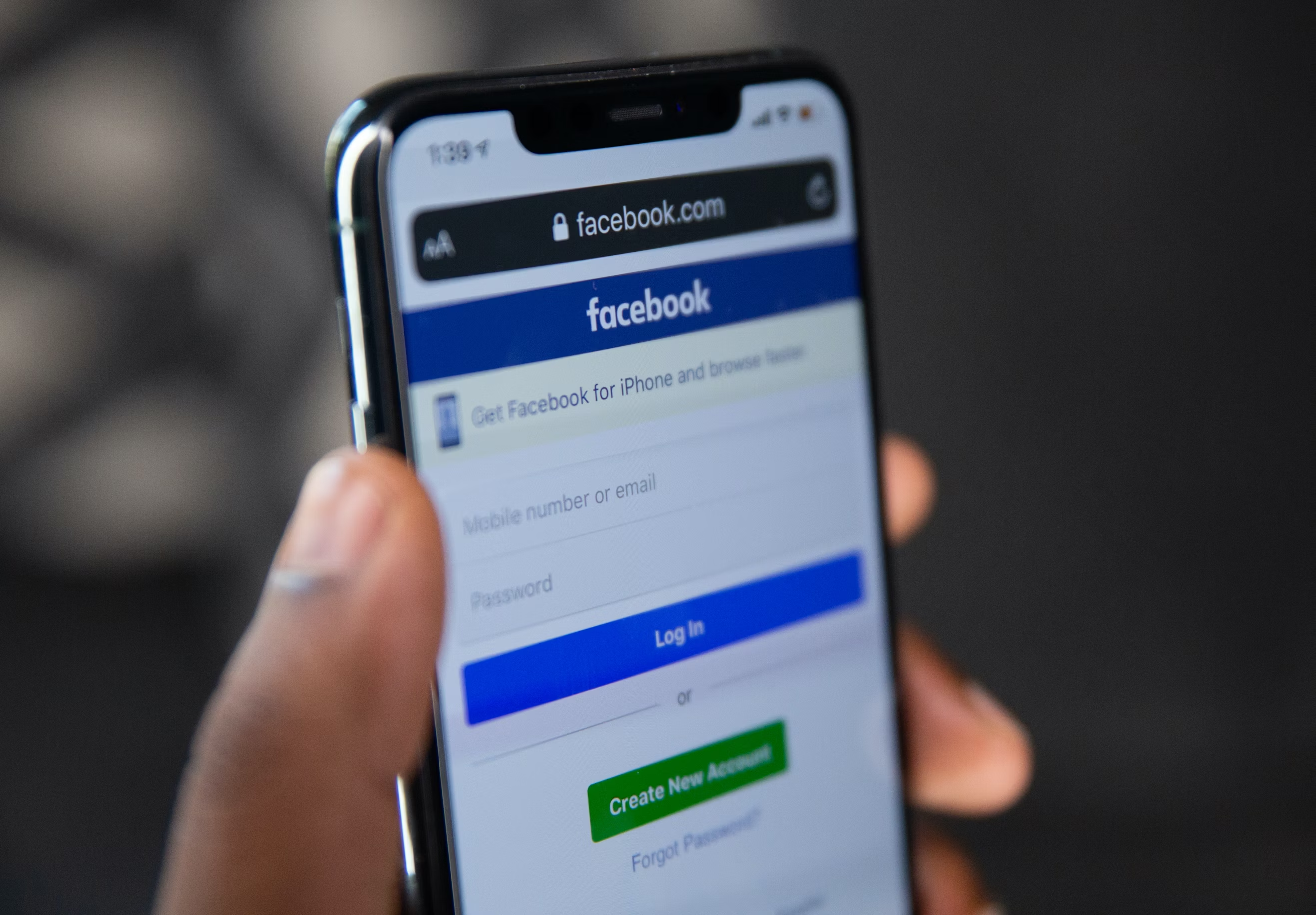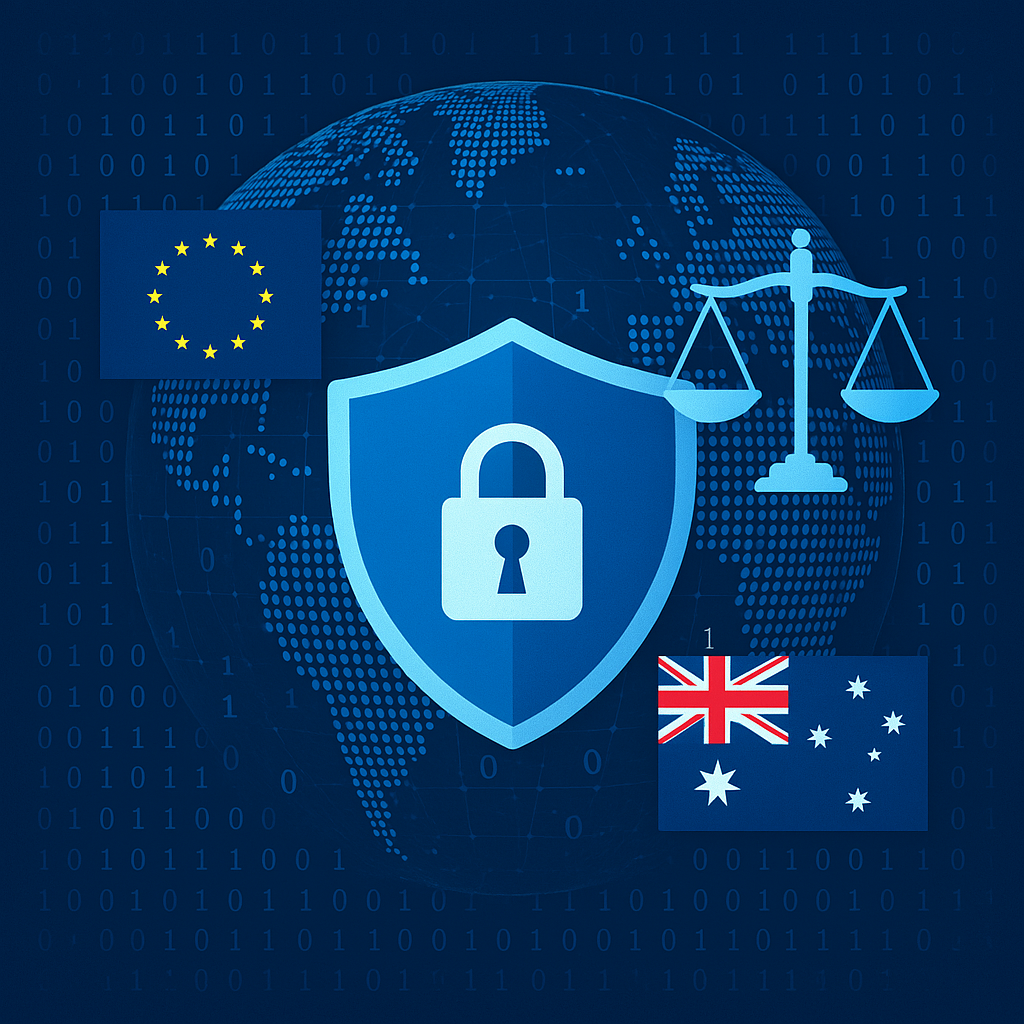Introduction: Your Digital Life Isn’t as Private as You Think
Imagine finding out that a private corporation has stored and analysed every discussion you’ve had online without your explicit approval. You tell a joke to a friend, discuss your political beliefs, or simply talk about your weekend plans. Each message appears innocent, yet powerful digital platforms such as Facebook and Google silently gather, analyse, and monetise every encounter. This is not a hypothetical possibility; it is a daily reality that is part of a larger issue known as surveillance capitalism, in which personal data is used as a primary source of profit for firms.
Privacy, an essential component of our fundamental digital rights, is under danger. Although digital platforms profess to empower consumers with personalised services, their true focus is corporate interests over user privacy (Flew, 2021). We’re left with platforms that make important judgements about our online life with little openness and responsibility.
The 2018 Cambridge Analytica incident properly exemplifies this risk. Millions of Facebook users learned that their data had been secretly collected and used for targeted political advertising without their knowledge. Despite public uproar, little has changed in how platforms handle data privacy (Suzor, 2019).
This poses a crucial question: who genuinely regulates our digital lives, and is it appropriate to put our privacy in the hands of organisations whose primary obligation is to shareholders rather than users?
“Despite promises of user empowerment, current digital platforms prioritize corporate interests over user privacy, raising critical questions about who truly governs our online lives.”
Privacy in the Digital Age: What’s Really at Stake?

In the digital age, privacy refers to the protection of personal information against misuse or unauthorised access. It is about giving people control over their personal data, selecting who can view it, use it, and share it. However, in the age of platforms and big data, traditional privacy safeguards have been substantially weakened (Flew, 2021).
MacBook Pro turned on. Photo by Paul Sweeney on Unsplash.
The concept of a “techlash“—public displeasure with large internet companies—became apparent following major privacy breaches such as the Facebook-Cambridge Analytica incident. Cambridge Analytica utilised personal information from around 87 million Facebook users without their explicit agreement to influence voter behaviour, dramatically undermining faith in Facebook and other platforms (Suzor, 2019).
Privacy has so emerged as a fundamental concern in conversations about digital governance. While platforms frequently claim that self-regulation through their Terms of Service and privacy policies is sufficient, experts believe that these rules do not adequately protect users’ rights (Suzor, 2019). They are complicated, opaque, and primarily intended to preserve corporate interests rather than user autonomy. The basic conflict is clear: platforms earn greatly from personal data while failing to provide significant transparency or accountability in data usage policies. This introduces substantial weaknesses that allow for misinformation, targeted manipulation, and systematic abuses of users’ digital rights (Karppinen 2017).
As digital citizens, we must grasp how our privacy is governed—and frequently violated. To move forward, we must critically analyse existing governance frameworks and demand more robust, rights-based regulation of our online lives.
Gatekeepers of Your Data: How Big Tech Profits from Your Privacy

“Surveillance Capitalism: Turning Your Clicks into Cash”
Today’s digital platforms serve as strong gatekeepers, impacting nearly every online interaction—from sharing ordinary moments to digesting news. These businesses, such as Google, Facebook, and Amazon, acquire massive amounts of personal information from consumers, often without their explicit or transparent agreement (Flew, 2021). Shoshana Zuboff proposed the phrase “surveillance capitalism” to describe this phenomenon, explaining how platforms profit from capturing and monetizing our digital footprints (Zuboff, 2019). This system monetizes our personal information, transforming it into predictions about our future behaviours, hobbies, and even political preferences.
To better understand the concept of surveillance capitalism and how profoundly it impacts our lives, watch Harvard Professor Shoshana Zuboff clearly explain these crucial ideas:
This video examines how large corporations collect and commercialise personal information, emphasising the critical need for improved safeguards and greater responsibility. Ultimately, such governance gaps can lead to major privacy violations, misinformation, targeted manipulation, and trust erosion—all of which imperil democracy itself (Flew, 2021; Karppinen, 2017).
Nonetheless, despite the substantial ramifications, digital platforms rely heavily on self-regulation, which is extremely problematic. According to Nicolas Suzor (2019), platform Terms of Service (ToS) and privacy policies, which users must agree to in order to participate online, are fundamentally inadequate governance instruments. They are lengthy, complicated, and intentionally ambiguous, making it practically impossible for ordinary people to understand their rights or how their data is utilised. Often, these papers prioritise the company’s interests over the users’ privacy, leaving them vulnerable to data misuse. Moreover, platforms do not substantially engage their consumers in privacy-related decision-making. Facebook’s failed democracy attempt offers a clear example: In 2009, Facebook enabled users to vote on proposed modifications to its terms and conditions. However, this democratic exercise did not last long. Due to poor user turnout and engagement, Facebook concluded that users had little interest in governance decisions, resorting to unilateral authority over policy changes (Suzor, 2019). This case demonstrates a fundamental flaw: platforms make superficial gestures towards user empowerment while keeping control firmly in corporate hands.
The implications of this governance gap are significant. Terry Flew (2021) observes that insufficient privacy measures directly promote data misuse, disinformation, and targeted manipulation. For example, highly personalised political advertising, made possible by vast data collecting, has influenced worldwide elections and public opinion, eroding democratic processes and institutional trust. Furthermore, Kari Karppinen (2017) emphasises the broader consequences for human rights online, stating that privacy violations and a lack of accountability can lead to censorship, discrimination, and risks to free expression.
Finally, the existing model of platform governance, which is dominated by self-regulation and ambiguous privacy policies, fundamentally fails users. It prioritises corporate profits over individual rights and democratic norms, resulting in widespread privacy abuses and eroded trust in digital platforms.

Case Study: Facebook’s Privacy Nightmares
Facebook is a good example of the systematic issues resulting from poor platform control and inadequate privacy safeguards. One of the most well-known cases is the 2018 Cambridge Analytica controversy, in which political campaigning was run using personal data from around 87 million Facebook users taken without clear authorisation (Suzor, 2019). This event revealed not only Facebook’s susceptibility to data abuse but also its insufficient regulations and controls on third-party access to user data.
- Cambridge Analytica: A Wake-Up Call
Cambridge Analytica, however, was not a unique occurrence. Facebook has always found it difficult to control hate speech, user privacy, and damaging material on its site. Nicolas Suzor (2019) underlines how especially concerning Facebook’s Terms of Service are as they provide no real user protection or remedy. These rules mostly serve Facebook’s interests instead of explicitly stating users’ privacy rights; they grant wide rights to use personal data without obvious limits or responsibility controls. Furthermore, Facebook’s method of controlling harmful content—including hate speech and false information—shows comparable governance flaws. Often, moderation is random, uneven, and unclear. Flew (2021) explains how platforms’ opaque decision-making and dependence on insufficient algorithms or outsourced human moderators usually cause their efforts to combat false information and dangerous content to fall short. This lack of transparency compromises the legitimacy and fairness of platform administration by aggravating current inequities and user distrust.
- The Illusion of Control: Facebook’s Terms of Service
Facebook’s ongoing privacy breaches highlight more fundamental, systemic problems shared by most digital platforms: a great power disparity between users and platform managers. Rather than protect user interests, users must agree to long, arcane policies and agreements meant mostly to protect the business from responsibility (Suzor, 2019). Meaningful user participation is almost difficult under this power imbalance, which puts important privacy choices totally in corporate control.
Facebook’s shortcomings show without a doubt the pressing necessity of stronger, clearer, and democratically responsible regulation. Relying on ambiguous Terms of Service and little openness to self-regulation consistently disappoints consumers and underlines the need of strong, rights-based government systems that give user privacy and digital rights top priority over corporate gain.
Can Regulations Save Your Privacy?

Governments have enacted tighter privacy regulations in reaction to the shortcomings of platform self-regulation. Especially one of the most rigors systems is the General Data Protection Regulation (GDPR) of the European Union, which calls for explicit user agreement, clear transparency, and significant user control over data (Flew, 2021). Likewise, Australia’s Privacy Act seeks to improve personal information protections by specifically defining companies’ duties in managing user data and guaranteeing openness.
However, even with their strengths, these systems have major drawbacks. Enforcement is still difficult since worldwide inconsistencies and jurisdictional restrictions hinder responsibility. Tech platforms cross national borders, therefore local laws find it challenging to hold global corporations completely responsible. GDPR penalties are substantial, for example, but enforcement sometimes depends on protracted, expensive procedures that fail to prevent infractions (Karppinen, 2017). Australia’s Privacy Act, like its namesake, has little range and poor enforcement tools, which creates user protection holes.
Taking Back Control: Recommendations for Better Privacy Governance
Kari Karppinen (2017) underlines that safeguarding digital privacy and human rights calls for more intense international cooperation and strong regulatory systems. Platforms readily take advantage of legislative holes without worldwide standards and significant enforcement, hence compromising intellectual rights protection initiatives. Policymakers thus have to follow certain specific suggestions. First, platforms’ privacy policies call for more openness and responsibility. Data practices should be explained clearly and simply by companies so that user permission is really informed instead of only procedural.
Establishing strong worldwide standards is second equally vital. Like climate or trade accords, international cooperation might enforce privacy rights consistently all throughout the world, hence closing regulatory gaps and discrepancies. Digital governance choices should finally be driven by significant user involvement. Users should have real impact, thereby guaranteeing policies of platforms reflect public values and democratic responsibility instead of only corporate interests.
Essentially, platform self-regulation or uneven local laws cannot be relied upon to ensure privacy. Genuinely protecting privacy in the digital era calls for a worldwide approach to digital rights grounded in openness, responsibility, and significant user involvement.
Conclusion: Privacy as a Human Right
All things considered, present governance structures for digital platforms and privacy protections are basically lacking. Typified by ambiguous and user-unfriendly Terms of Service, platform self-regulation mostly prioritises business interests, hence endangering users to data abuse and privacy breaches (Suzor, 2019). High-profile failures, such as Facebook’s Cambridge Analytica controversy, vividly highlight these systematic flaws (Flew, 2021).
Regulatory actions such as the EU’s GDPR and Australia’s Privacy Act have tried to allay privacy issues, however enforcement issues and worldwide discrepancies undermine their efficacy (Karppinen, 2017). Therefore, safeguarding digital rights calls for rethinking regulatory policies much beyond present standards.
The need is obvious: we have to move towards stronger, internationally coordinated rules giving priority to openness, responsibility, and real user participation. Platforms should not anymore unilaterally define what privacy is. Privacy should rather be a digitally defined, unequivocally enforceable right decided by society. The main point is that digital rights—especially privacy—are human rights. Users have to actively support policies prioritising their needs, thereby expecting more than tokenistic self-regulation from platforms. We can protect privacy and take back significant control over our digital lives only by means of open, responsible government systems and worldwide cooperation.
References:
I generated 2 images above using ChatGPT’s AI tools (OpenAI, 2025) to visualize digital privacy concerns.
Flew, T. (2021). Regulating platforms. Polity Press.
Karampelas, K. (2019). Facebook app open on phone screen [Photograph]. Unsplash. https://unsplash.com/photos/HUBofEFQ6CA
Karppinen, K. (2017). Human rights and the digital. In H. Tumber & S. Waisbord (Eds.), The Routledge companion to media and human rights (pp. 95–98). Routledge.
Nelson, D. (2019). Smartphone security and privacy concept [Photograph]. Unsplash. https://unsplash.com/photos/Bd7gNnWJBkU
OpenAI. (2025). Human head silhouette with data transforming into dollar signs [AI-generated image]. ChatGPT. https://chat.openai.com/
OpenAI. (2025). Illustration of global data privacy with EU and Australian flags, justice scales, and a security shield [AI-generated image]. ChatGPT. https://chat.openai.com/
Suzor, N. (2019). Who makes the rules? Platforms and governance in the digital age. Cambridge University Press.
VPRO Documentary. (2019, December 20). Shoshana Zuboff on surveillance capitalism | VPRO Documentary [Video]. YouTube. https://www.youtube.com/watch?v=hIXhnWUmMvw
Zuboff, S. (2019). The age of surveillance capitalism: The fight for a human future at the new frontier of power. PublicAffairs.


Be the first to comment